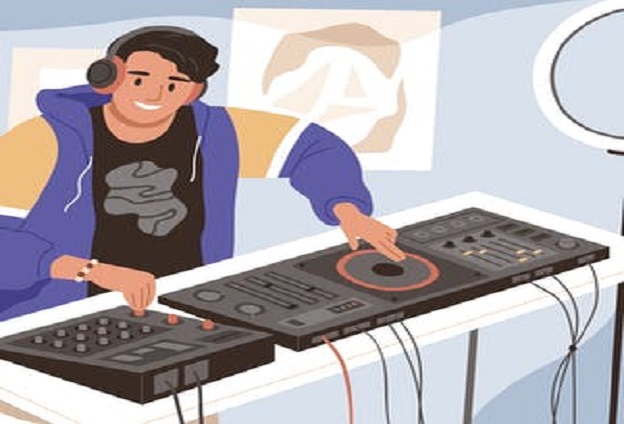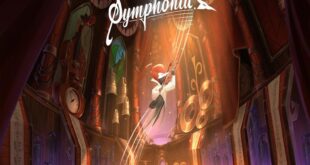With nightclubs shuttered, DJs have been particularly hard hit by the pandemic. To make up for a lack of regular bookings many have taken their sound to the virtual airwaves through platforms such as Twitch, Mixlr, and the newly launched Mixcloud Live. While the idea of streaming live DJ sets is not new, the unforeseen arrival of COVID and lockdown has triggered an unprecedented rise in online DJ streams.

The sight of a person bopping around behind decks while virtual hearts and comments stream past on the screen has become pretty well known. The vast majority of DJs, ranging from professional to those who play part-time and other enthusiasts, have had to be creative and online sets streamed through social media have been a lifeline for DJs and dance music lovers alike.
This mass move has led to a series of interesting developments in DJing and nightlife that are likely to have a lasting impact post-COVID.
A collaborative club
In your average club there is the private space of the DJ booth and the public spaces of the dancefloor and bar. Digital streaming is changing this idea of space.
DJs are decorating their studio and practice spaces – which are often within their homes – in ways which represent them, the music they play, and the venues they played at pre-pandemic. DJs including Mikey D.O.N – who plays a range of dance-focused genres from reggae and hip hop to acid house – hangs the Jamaican flag over his decks, which references his Caribbean heritage and nods to the sound system culture in which he grew up.
Rope lighting, posters of previous gigs, and record sleeves adorn many other DJs’ backgrounds – and what once may have felt like a private and shrine-like space has been opened up to the public. This is almost a voyeuristic view into another part of the DJ’s world.
These streams are also reimagining events. Audience participation through a live text-based chat stream, coupled with interaction by the DJ on the microphone, fosters an experience which is at once individual and collective.
In this new online “club”, playlists are often abandoned as chat streams richly debate songs or tracks – provoked by the sounds currently spinning. This might prompt the DJ to go off-playlist to root through their collection to find and play a hotly debated track. DJs name-drop, rewind, and feed in other sounds – engaging with specific comments in the chat thread. This exchange is more than making a request – it’s a collaborative creative act whereby DJ and audience work together to shape the experience.
That audience is also widened and more diverse. In a club you are limited by space, but online the audience can be limitless. For instance, DJ Jazzy Jeff, Will Smith’s original music partner, has just short of 17K followers on the streaming platform Twitch and an average of 900 live viewers. Once that stream is uploaded and available to be replayed it has the potential to reach more people. One stream reached almost 7,000 listeners in a day.
Streaming also has the potential of engaging communities that tend to be excluded from the physical experience. This includes those who live in remote areas, those who face access issues due to disabilities and others who favour sober spaces.
Copyright issues
As with any new frontier, there have been challenges. On November 11, after receiving thousands of copyright infringement notifications from rights holders, Twitch announced: “if you play recorded music on your stream, you need to stop doing that”. This has huge implications for DJs as streaming is one of a very few viable options available to them while venues remain closed. Some venues, however, are hosting streamed DJ sets and virtual club nights in a bid to retain their clientele.
Mixcloud offers an option to stream recorded music for a £9 per month subscription, and Mixlr has a similar service for £9.99 per month. For the average club DJ, this can be financially unsustainable, especially as no direct revenue is gained by streaming unless DJs enlist paying subscribers or earn tips.
While streaming isn’t without its problems, clubbing in person is a long way off and this new online world is offering nightlife practitioners the chance to re-imagine what the club post-COVID will look like.
One aspect of clubbing in particular that should be readdressed is that of access. How can events be more inclusive of those people that they are now reaching through streaming? It may be that clubs, venue management and DJs will need to work more closely together to bring a physical 360-degree experience spawned from the streaming era.
Events may diversify spatial and sonic experiences by blending real and digital spaces, performers and audiences. There could even offer a personal rewind option where clubbers might revisit physical events to experience them digitally later. Whatever it may be, the progression of digital technology will inevitably play a more central role in the future spaces of clubland.





 World Opinions Débats De Société, Questions, Opinions et Tribunes.. La Voix Des Sans-Voix | Alternative Média
World Opinions Débats De Société, Questions, Opinions et Tribunes.. La Voix Des Sans-Voix | Alternative Média




